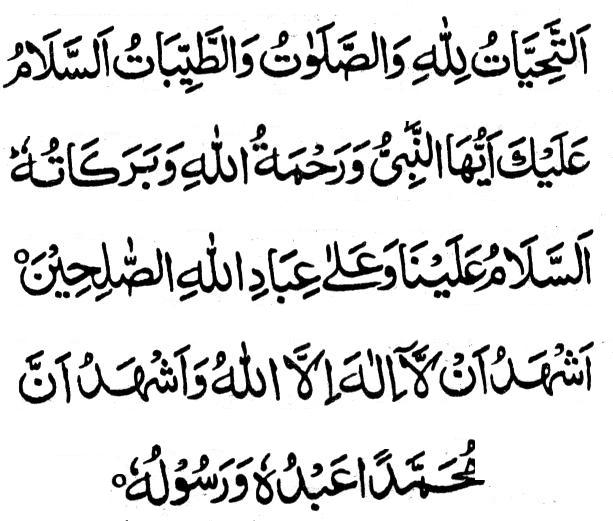Assalamu`alaykum,
Bismillah.
Volume 2, Book 17, Number 818:
Narrated Abu Huraira;
Whenever the Prophet (p.b.u.h) lifted his head from the bowing in the last Raka he used to say: "O Allah! Save 'Aiyash bin Abi Rabi'a. O Allah! Save Salama bin Hisham. O Allah! Save Walid bin Walid. O Allah! Save the weak faithful believers. O Allah! Be hard on the tribes of Mudar and send (famine) years on them like the famine years of (Prophet) Joseph ." The Prophet further said, "Allah forgive the tribes of Ghifar and save the tribes of Aslam." Abu Az-Zinad (a sub-narrator) said, "The Qunut used to be recited by the Prophet in the Fajr prayer."
Volume 2, Book 17, Number 819:
Narrated Masruq:
We were with 'Abdullah and he said, "When the Prophet saw the refusal of the people to accept Islam he said, "O Allah! Send (famine) years on them for (seven years) like the seven years (of famine during the time) of (Prophet) Joseph." So famine overtook them for one year and destroyed every kind of life to such an extent that the people started eating hides, carcasses and rotten dead animals. Whenever one of them looked towards the sky, he would (imagine himself to) see smoke because of hunger.
So Abu Sufyan went to the Prophet and said, "O Muhammad! You order people to obey Allah and to keep good relations with kith and kin. No doubt the people of your tribe are dying, so please pray to Allah for them."
So Allah revealed: "Then watch you For the day that The sky will bring forth a kind Of smoke Plainly visible ... Verily! You will return (to disbelief) On the day when We shall seize You with a mighty grasp." (44: 10-16)
Ibn Masud added, "Al-Batsha (i.e. grasp) happened in the battle of Badr and no doubt smoke, Al-Batsha, Al-Lizam, and the verse of Surat Ar-Rum have all passed.
Dukhan (Smoke):
فَارْتَقِبْ يَوْمَ تَأْتِي السَّمَاءُ بِدُخَانٍ مُّبِينٍ
Then wait you for the Day when the sky will bring forth a visible smoke,
يَغْشَى النَّاسَ ۖ هَـٰذَا عَذَابٌ أَلِيمٌ
Covering the people: this is a painful torment.
رَّبَّنَا اكْشِفْ عَنَّا الْعَذَابَ إِنَّا مُؤْمِنُونَ
(They will say): "Our Lord! Remove the torment from us, really we shall become believers!"
أَنَّىٰ لَهُمُ الذِّكْرَىٰ وَقَدْ جَاءَهُمْ رَسُولٌ مُّبِينٌ
How can there be for them an admonition (at the time when the torment has reached them), when a Messenger explaining things clearly has already come to them.
ثُمَّ تَوَلَّوْا عَنْهُ وَقَالُوا مُعَلَّمٌ مَّجْنُونٌ
Then they had turned away from him (Messenger Muhammad صلى الله عليه و سلم) and said: (He is) one taught (by a human being), a madman!"
إِنَّا كَاشِفُو الْعَذَابِ قَلِيلًا ۚ إِنَّكُمْ عَائِدُونَ
Verily, We shall remove the torment for a while. Verily you will revert (to disbelief).
[Ad-Dukhan: 10-15]
Batsha:
يَوْمَ نَبْطِشُ الْبَطْشَةَ الْكُبْرَىٰ إِنَّا مُنتَقِمُونَ
On the Day when We shall seize you with the greatest seizure (punishment). Verily, We will exact retribution. [Ad-Dukhan: 16]
إِنَّ بَطْشَ رَبِّكَ لَشَدِيدٌ
Verily, (O Muhammad صلى الله عليه وسلم) the Seizure (punishment) of your Lord is severe and painful. [Al-Burooj: 12]
وَكَذَٰلِكَ أَخْذُ رَبِّكَ إِذَا أَخَذَ الْقُرَىٰ وَهِيَ ظَالِمَةٌ ۚ إِنَّ أَخْذَهُ أَلِيمٌ شَدِيدٌ
Such is the Seizure of your Lord when He seizes the (population of) the towns while they are doing wrong. Verily, His Seizure is painful, (and) severe. [Hud: 102]
Lizam:
قُلْ مَا يَعْبَأُ بِكُمْ رَبِّي لَوْلَا دُعَاؤُكُمْ ۖ فَقَدْ كَذَّبْتُمْ فَسَوْفَ يَكُونُ لِزَامًا
Say (O Muhammad صلى الله عليه وسلم to the disbelievers): "My Lord pays attention to you only because of your invocation to Him. But now you have indeed denied (Him). So the torment will be yours for ever (inseparable, permanent punishment)." [Al-Furqan: 77]
As already mentioned in the Hadith, this famine had occurred on the Holy Prophet's prayer, and he had prayed for it so that when the calamity befell, it would break the stubbornness of the disbelievers and then they would listen to the rebuke. It looked as if this expectation was being fulfilled to some extent, for some of the most stubborn enemies of the Truth, on account of the severities of the famine, had cried out: "O Lord, avert this torment from us and we will believe." At this, on the one hand, the Holy Prophet has been foretold :"These people will not learn any lesson from such calamities. When they have turned away from the Messenger, whose life, character, works and speech clearly show that he is Allah's true Messenger, how will a mere famine help remove their disbelief?" On the other, the unbelievers have been addressed, so as to say : "You lie when you say that you will believe as soon as the torment is removed from you. We shall just remove it to see how sincere you are in your promise. There is a graver disaster about to fall upon you. You need a much more crushing blow :minor misfortunes cannot set you right."
Some scholars comment that this 'smoke' is referring to the event that will take place on the Day of Resurrection, but Ibn Mas`ud's opinion (which seems the most correct one) was that Dukhan (Smoke) has already taken place. Meaning, it happened on the Battle of Badr. Allahu A`lam.

- Site of the Battle of Badr
Anyway, whatever happened with the Quraysh and other nations of the past is history. Being judgmental is not the way to look at it. Allah (SWT) narrated these stories in the Qur'an for our benefit. He wants us to learn. He wants us to not repeat those mistakes. He wants us to be saved from His punishment. He wants to have Mercy on us. But do we, or will we ever learn!?
Wassalam.




Menu
Menu
Social Media Icons
Labels
Report Abuse
Contributors
سیرتِ النبی قسط نمبر 43
Search This Blog
Random Posts
Label
Recent Posts
Facebook
Recent Posts
Popular Posts
Pages